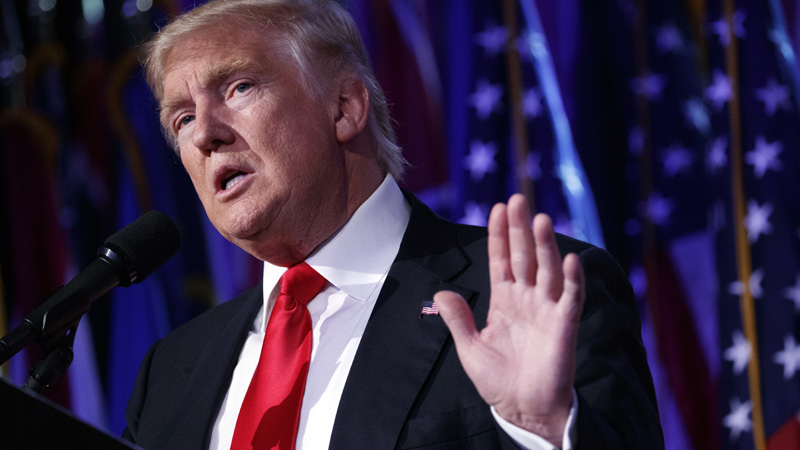Trump ‘biggest risk’ to PH growth
Donald Trump’s victory in the US presidential election could increase “uncertainty” in the Philippine economy that has been highly dependent on remittances as well as the business process outsourcing (BPO) sector.
“The US with Trump as the new president is the biggest risk for [the Philippines’] growth next year; our preliminary estimates suggest growth could be 0.2-percentage point lower than our current baseline,” Japanese financial giant Nomura said in a Nov. 10 report titled “What Trump means for Asia.”
Nomura had projected 6.7-percent gross domestic product (GDP) growth for the Philippines this year before easing to 6.3 percent in 2017 and 6.1 percent in 2018. But in its preliminary estimates on the impact of a Trump presidency on Asian GDP growth, Philippine economic expansion was seen further slowing to 6.1 percent next year.
The government targets 6 to 7 percent growth this year and a faster 6.5-7.5 percent next year.
“As we have argued before, the Philippines is one of the most highly exposed economies as its share of the US as a destination of merchandise exports is the highest in the region at 15.3 percent (and it now runs a trade surplus with the US of about 0.7 percent of GDP). In addition, if US immigration policies are tightened and outsourcing activities are reduced during Trump’s drive to bring jobs back, this could hurt both the Philippines’ current account surplus and domestic demand via lower overseas worker remittances (we estimate 30 percent of remittances come from the US) and lower foreign exchange revenues/employment from the BPO sector, which mostly cater to US corporations,” Nomura explained.
Also, “the recent anti-US rhetoric by President Duterte is also likely to raise the risk of weaker relations with the US, its biggest political ally,” it added.
But for Nomura, Duterte’s pivot to China, alongside the plan to ramp up government spending on infrastructure, would mitigate risks from a US led by Trump.
Stronger Philippines-China economic ties “could alleviate some of the geopolitical tensions associated with the South China Sea dispute after the Philippines won the International Court of Arbitration ruling,” Nomura said.
On the domestic front, “intensification of the war on drugs, which could weigh on sentiment, a sharp deterioration in international relations with key allies and slower reform execution are the main risks,” Nomura said.
While global economic research firm Capital Economics said it was “broadly optimistic” over the Philippines’ growth prospects, “recent political events, both in the US and domestically, have increased the uncertainty.”
“It remains to be seen if Donald Trump will follow through on some of his more protectionist policies, but if he did the repercussions for the Philippines would be significant,” Capital Economics said, citing the potential impact on the country’s top US dollar sources.
For one, “remittances to the Philippines from the US are the equivalent to 3 percent of the country’s GDP, while exports are equivalent to a further 4 percent,” Capital Economics noted.
Also, “the Philippines’ booming business outsourcing sector, which has benefited hugely from US investment, would also be hit hard by any attempt to bring back jobs to the US,” it added.
“We are keeping our growth forecasts of 7 percent for this year and 6.5 percent in 2017 unchanged, but the downside risks, which had increased following the election of President Duterte earlier in the year, have risen further,” according to Capital Economics.
